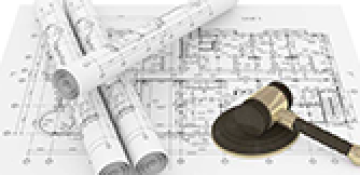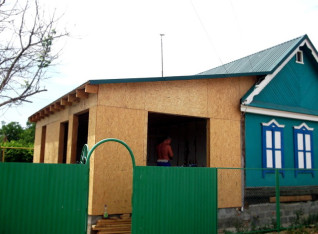Registering a share in the Netherlands: Legal aspects of real estate ownership and legalization of redevelopments
The Netherlands, a country with a unique history and culture, is also known for its complex but efficient real estate market. For foreign investors, the processes of registering a share and legitimizing redevelopment may seem confusing. The purpose of this article is to explain the key legal aspects, from the initial property inspection to the registration of extensions and extensions in the Netherlands.
1. Registering a share: the Dutch approach
In the Netherlands, the concept of registering a share (registratie van aandeel) most often concerns the acquisition of a share in a cooperative property (coöperatieve vereniging) or an association of owners (vereniging van eigenaren, VvE). However, for the purposes of this article, we will look at the process more broadly, including the different forms of common ownership of real estate.
1.1. Property verification (due diligence)
Before purchasing a share or interest in Dutch real estate, it is important to conduct a thorough check:
- Research in the Kadaster: this is a public register containing information on all real estate in the Netherlands. Here you can check the history of the property, the presence of a mortgage (hypotheek) or other encumbrances.
- Technical inspection (technische keuring): assessment of the physical condition of the property, including identifying potential problems with redevelopment or unauthorized changes.
- Zoning review (bestemmingsplan): ensuring that the property complies with the local zoning plan governing permitted uses and possible changes.
1.2. Paperwork
After verification, the stage of document preparation begins:
- preliminary purchase agreement (voorlopig koopcontract): defines the terms of the transaction.
- notarial deed of transfer (notariële akte van levering): the final document transferring ownership.
- hypothec act (hypotheekakte): if you take out a mortgage from a Dutch bank.
1.3. Registration in the Cadastre
After signing the notarial deed, the notary (notaris) registers the change of ownership in the Cadastre. This is a public record of your ownership, available online.
2. Obtaining ownership by acquisitive prescription
In Dutch law there is a concept of “verjaring”, similar to the Ukrainian “acquisition of property by acquisitive prescription”. It allows a person who continuously and openly uses someone else's property without the owner's permission to acquire ownership of it after a certain period.
In the Netherlands there are two types of verjaring:
- Acquisitieve verjaring: 20 years of continuous use in good faith.
- Extinctieve verjaring: 30 years of continuous use, even without conscientiousness.
However, verjaring is rare and requires a court order emphasizing the importance of clear boundaries and regular inspections of your property.
3. Legalization of redevelopment: navigation in the Dutch rules
3.1. Registration of redevelopment
In the Netherlands, any major redevelopment (verbouwing) requires permission from the local authorities (gemeente):
- submission of detailed plans (bouwplannen) drawn up by a licensed architect.
- obtaining permission for redevelopment (omgevingsvergunning voor verbouwing).
- inspections during and after completion of work.
3.2. Legalization of redevelopment
After completion of the work you need to obtain a certificate of conformity (gereedmelding). This document confirms that the work was carried out according to the approved plans and complies with all building regulations (bouwbesluit).
Important: unauthorized redevelopment (illegale verbouwing) can lead to significant fines or even being forced to restore the original condition.
4. Legalization of superstructures and extensions
4.1. Add-on design
Adding a floor (opbouw) in the Netherlands is strictly regulated, especially in historic areas:
- checking the structural integrity (constructieve sterkte) of the existing building.
- obtaining special permission for the add-on (vergunning voor opbouw).
- public hearings are possible, especially if the superstructure affects the overall appearance of the street.
4.2. Extension design
Extensions (uitbouw) also require careful design:
- checking compliance with the requirements for deviations from the boundaries of the site (erfgrens).
- obtaining a building permit (bouwvergunning).
- it may be necessary to adapt engineering systems (water, sewerage, electricity).
5. Legalization of illegal buildings
5.1. Legalization of a building
If you have purchased a property with unauthorized modifications (illegale bouw), the legalization process can be complex. There is no single national mechanism in the Netherlands, but each municipality has its own rules.
Typical process:
– disclosure of all illegal changes to the municipality.
- presentation of plans “as is” (bestaande situatie tekeningen).
- implementation of necessary changes to comply with standards.
- fines or increased fees for permits.
5.2. Building decoration
After legalization Documentation needs to be updated:
- obtaining a new certificate of conformity.
- Updating records in the Cadastre to reflect the new area or configuration.
- revaluation for tax purposes (WOZ-waarde).
6. The role of professional immobility lawyers
In the Netherlands, the role of the real estate lawyer (vastgoedadvocaat) cannot be overestimated. Unlike some countries where notaries play a key role, in the Netherlands lawyers:
- conduct research in the Cadastre and analyze the results.
- prepare and review all documents, including preliminary purchase agreements.
- interact with real estate agents (makelaar), inspectors and local authorities.
- Advise on the legality of redevelopments, add-ons and extensions.
- represent clients in court cases related to verjaring or violations of building codes.
7. Regional features
Although the Netherlands is small, regional differences in real estate rules are significant:
- Amsterdam: strict rules for redevelopment in historical buildings (monumenten).
– Rotterdam: more liberal rules due to the need for reconstruction after World War II.
- Utrecht: special requirements for superstructures due to the preservation of the city skyline.
- Rural areas: often simpler procedures, but more attention to the impact on the landscape.
8. Conclusion: complexity and the need for a professional approach
Registering a share and legalizing redevelopments in the Netherlands is a complex process that requires an understanding of national and local laws. Key points:
- A thorough Cadastre check and technical inspection can prevent future problems.
– Any changes to the structure of the building require permission from the municipality.
- Unauthorized redevelopment can have serious legal and financial consequences.
- Regional differences highlight the importance of local legal expertise.
Investing in Dutch property can be extremely attractive due to the stability of the market and the high quality of life. However, navigating legal waters requires a professional approach. Hiring a qualified vastgoedadvocaat is not just a recommendation - it is a necessity to ensure the legitimacy, security and long-term value of your investment.
In a country where every square meter is precious and historical heritage is strictly protected, careful adherence to the rules for registering shares and legitimizing shifts is not just a legal formality. This is the basis for your success in the Dutch real estate market, where tradition meets innovation and every detail matters.
In conclusion, it should be emphasized that although the processes may seem complex, they are designed to protect the unique character of Dutch towns and villages. By following these rules, you not only protect your investment, but also contribute to preserving the special charm that makes the Netherlands such an attractive place to live and invest.




































